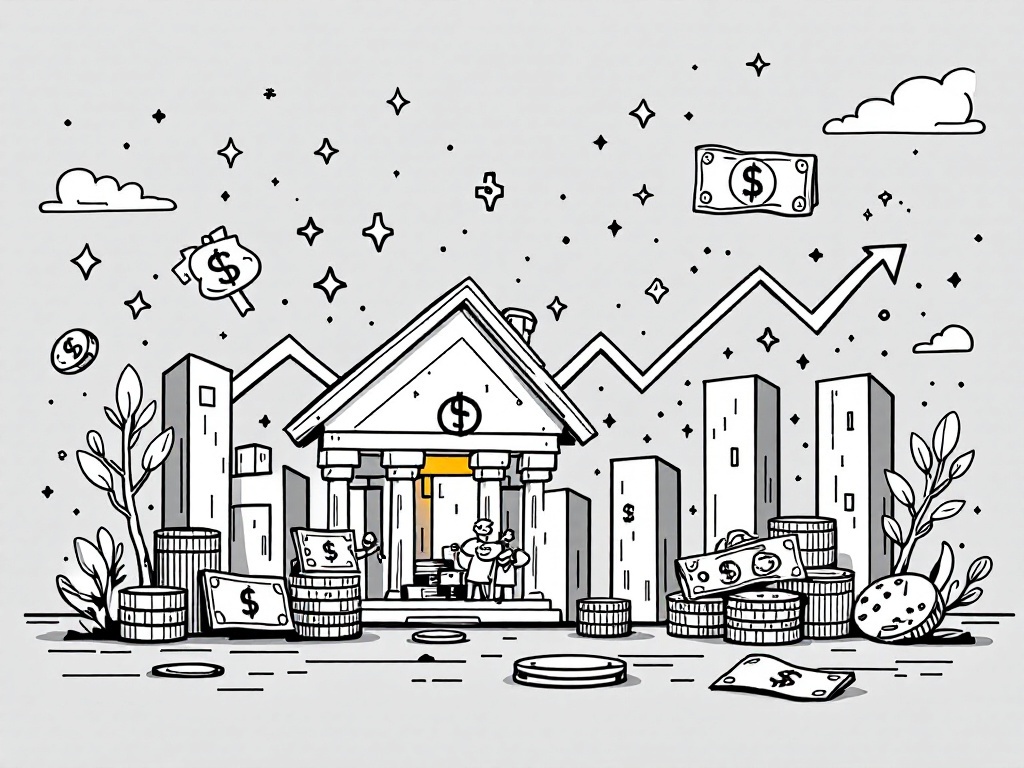US 'Rolling Recession' Set to End, Heralding a New Economic Boom

United States, Friday, 2 May 2025.
Economists predict an end to the three-year US rolling recession, with productivity gains expected to spark a robust bull market, benefiting innovative sectors like AI and robotics.
Federal Reserve’s Influence Paving the Way
The Federal Reserve’s decision to implement a 22-fold interest rate hike over a period of 16 months—beginning from mid-2022 to the end of 2023—played a pivotal role in ushering the US economy into what has been termed a ‘rolling recession.’ This marked the most significant rate hike in post-World War II history, affecting various sectors deeply [1].
Sector Impact and Recovery Prospects
Housing and auto sales were among the first casualties, with existing home sales witnessing a 39% decline over the past three years and auto sales remaining below their normal expansion levels since mid-2021 [1][4]. Manufacturing took a hit as well, with the Purchasing Managers Index (PMI) remaining below 50 since late 2022, indicating contraction [1]. However, economists foresee the negative impact reversing as policies stabilize and productivity improvements drive a recovery, potentially initiating a bull market in the second half of 2025 [3].
Focus on Technological Innovation
Innovation sectors, particularly those involving AI, robotics, and energy storage, stand to benefit markedly from the predicted economic boom. ARK Invest, a prominent voice in the innovation investment landscape, suggests that the current valuation of these innovative assets is in ‘deep value’ territory, positioning them for substantial growth as the broader market recovers [2][4]. Studies suggest that costs associated with AI and other technologies are declining at impressive rates, making them cornerstones of future productivity-led growth [1][3].
Innovation as a Catalyst for Growth
Current models, such as Wright’s Law, predict significant cost reductions for every cumulative doubling in output of technologies like AI and industrial robotics. These technological advancements are expected to play a critical role in driving productivity gains, which could lower inflation and foster a booming economy [1][4]. Increased productivity, coupled with potential clarity in tariffs and regulations, points to robust future economic health, suggesting that a broader, healthier bull market is on the horizon [5].